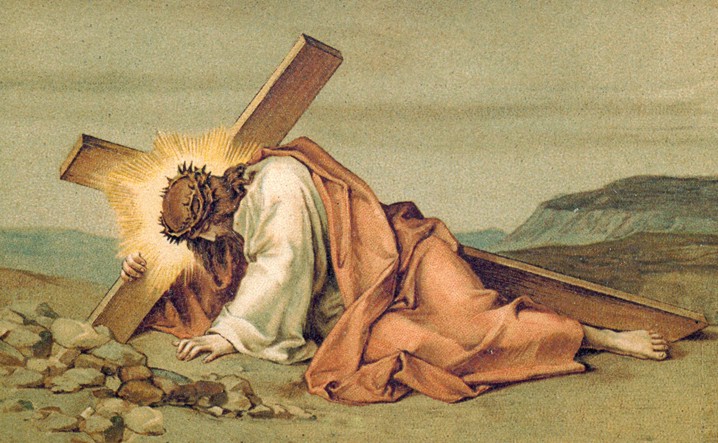Holy Week: meditation on Holy Tuesday
Then one of the twelve, called Judas Iscariot, went to the high priests, and said to them: "How much will you give me, if I will give it to you?". And they stared at thirty silver coins. (Mt 26, 14-15)
In the first days of the great week, as on the heart of Jesus, the shadow of Judas weighs. It costs to talk about it, as it costs to be silent. We would like them to do soon ("What you want to do, do it soon"), while betrayal - bartering is a moment: a promise and a bag that are exchanged - is consumed slowly. I believe that desperation is preparing in this slowness, which ends up corroding the most ironic resistances. Judas also loved, Judas must have believed the Master one day. But Judas is a man, and his human heart, which one day he loved and believed, must have yielded under the weight of a "shop", which must have seemed increasingly bad, as the events to which he had given the embrace with his betrayal, they proceeded towards their fatal conclusion. Instead of enjoying seeing him lost (unlike the other disciples, Judas closely follows the Master), he feels lost in the success of the enterprise he started. What we wanted (who knows why we want certain things?) Does not always bring us satisfaction. There are victories that afflict us fearfully. The conclusions of sin are incurable and, if mercy does not help us, no eye bears its aspect. Judas dares to look. Pilate reappears in the Praetorium and says: "Here is the Man". The soldiers push a red rag forward. Pilate, with a smile of disgust, adds: "Here is your King". He disguised him as a king, with a crown of thorns on his head and a cane scepter in his hand. The blood turns dark circles and runs down the cheeks. The mouth opens slightly on the yearning. The eyes look at Judas, he alone, with infinite pity. Anguish descends into Judas' breast. A sigh forms inside him: "O Maestro, o
Lord, or friend ”. But the voice does not come out. Judas does not cry, he does not cry out, he does not flee. The only gesture he succeeds in, here it is: "Bring the thirty silver shekels back to the chief priests and the elderly: <>. But they said: <> ”. What could he do? What echo would his testimony to the Innocent find? The chief priests were harder than the stones of Golgotha. The crowd shouted louder and louder: "Crucify him!". There was only the refuge of the arms that were about to be nailed: but he no longer had the faith to allow himself to be embraced by that divine friendship that awaits the deniers and traitors of all faiths. Those who have faith may be momentarily overwhelmed by evil, but they are not lost. Judas is intelligent enough to understand that the money of the Innocent cannot serve him, but he no longer has a kiss with which to respond to the Master, who gently and tirelessly repeats, even in the agony of the cross, the word: "Friend". A kiss would have saved him. But how difficult it is to give back our hearts, when the heart has served for barter! All that is dearest and most holy, most adorable and most lovable, is extinguished by this muddyness that kisses without love and applauds without conviction. Faith, friendship, the homeland can be betrayed by these "expert" people, who bargain on everything and make money, and who believe they can save themselves from despair by building an armored belt of bank notes around them. The "inexperienced", the "unpredictable", do not manufacture safes, do not speculate on anything, do not create new economies, but they do not betray any blood, do not shirk any commitment, do not start the son of man on the ordeals of history, nor they are found with the rope around their neck, tied to the cursed fig tree, on the branch stretched over the precipice. (
